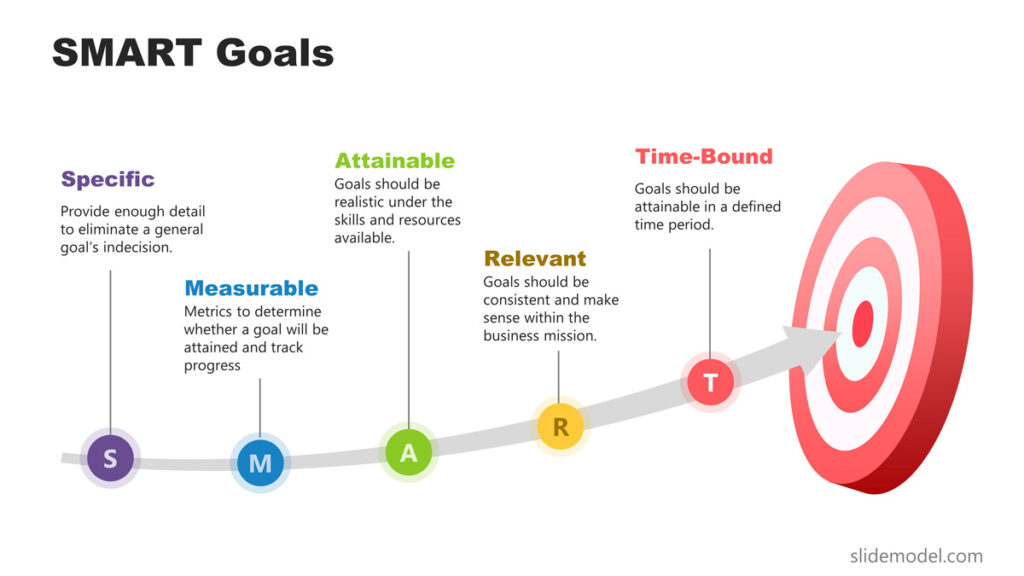9 Guaranteed Motivation Tips for Blogging Consistently
At some point or the other, every blogger needs extra motivation for blogging consistently.
The reason is simple.
Consistency is the cornerstone of successful blogging.
Yet, the fact remains that staying consistent can be a tough task.
From battling writer’s block to juggling other responsibilities, bloggers often find themselves struggling to stay on track.
Neil Patel, the epic blogger, says “blogging is its own animal. It requires a lot of active work, and when you’re starting out, pretty much every day is a hustle.”
Well, this very “hustle” implies consistency.
And it can appear extremely difficult if you don’t drive yourself with easy motivation tips for blogging consistently.
In this article, we’ll explore nine proven motivation tips to help you achieve blogging consistency.
Let’s dive in and unlock the secrets to consistent blogging.
Tip 1: Goals: The Best Motivation Tip for Blogging Consistently
So where does success begin for you as a blogger?
Well, success begins with clearly defining your blogging goals.
And clearly defined goals are also the most effective ways to stay motivated in your blogging journey.
Remember, your goals are also your roadmap to success.
In fact, having a goal-based roadmap is among the top motivation tips for blogging consistently.
Without a roadmap, it’s easy to lose focus and momentum.
Now, in order to set those clear goals, start by defining what success means to you as a blogger.
Do you want to increase your audience reach, monetize your blog, or simply create exceptionally engaging content ? Or anything else?
Once you have a clear vision, break it down into smaller, actionable goals.
Setting SMART Blogging Goals
So how do you go about setting clear blogging goals that will keep your blogging motivation going?
Here’s how: Consider using the SMART criteria.
The SMART formula for structuring your goals setting simply stands for specific, measurable, achievable, relevant, and time bound.

Image Source: Slidemodel.com
Let me explain.
For example, one blogger sets a vague goal like “write more blog posts“.
Whereas a second blogger creates a specific goal like “publish two high-quality blog posts per week for the next three months.”
When you create a specific goal like the second blogger, you gain a twofold advantage.
Firstly, it gives you a clear target to work towards.
Secondly, it also helps you track your progress along the way.
That’s the way to go about setting SMART goals.
But there’s more.
Setting Realistic Goals
You’ve got to be realistic in your goal setting.
Be realistic about what you can accomplish within a given timeframe.
Setting overly ambitious goals can lead to burnout or blogger’s block
That’s why you need to start small and gradually increase the intensity as you build momentum and confidence.
This is exactly what keeps you motivated for blogging consistently.
However, there’s another interesting component: Your past achievements.
What about them?
Well, bloggers (especially in the demotivation phase) tend to underrate their own past achievements.
I would urge you never to forget your past achievements along the way.
Rather, you need to celebrate your past achievements. Even the small ones.
It could be something as small as receiving the first comment on your blog after months.
Or gaining a tiny peak in traffic today compared to last week.
It could be something relatively bigger like reaching a milestone number of subscribers or receiving positive feedback on your content.
In fact, appreciating your progress in any small way can uplift your motivation for blogging consistently like nothing else.
Eventually, by setting clear and realistic goals, you’ll be better motivated to stay consistent in your blogging efforts. More so, when you stop to invest in appreciating yourself.
Read More : Rekindle Your Blogging Motivation: Tactics for Successful Bloggers
Tip 2: Blogging Schedule : Motivation For Blogging Consistently
Blogging consistency thrives on structure.
According to Aicontentfy.Com, “consistency refers to the frequency and regularity of your posts, as well as the overall style and tone of your content. It means that your readers can expect new posts from you at a set schedule and that your writing style and content focus remain consistent over time.
And so, one of the best ways to maintain a steady flow of content is by creating a blogging schedule.
A well-organized blogging schedule helps you stay on track. It also reduces the stress of last-minute deadlines.

Well, it all boils down to this.
You need to mark specific days and times for different blogging tasks.
For instance, you could devote one day to brainstorming.
Two to three days you could be writing.
The fourth day you could edit and publish your posts. And so on.
But before scheduling like this, do consider your personal preferences and productivity patterns.
For instance, if you’re most creative in the mornings, block off that time for writing new content.
You can even leverage blogging tools and resources to fine-tune your scheduling process.
Another way is to use online calendars or project management platforms.
They also help you track of your blogging schedule and set reminders for upcoming tasks.
You can also employ scheduling tools for social media posts. This is to maintain a consistent online presence and drive traffic to your blog.
Most importantly, prioritize quality over quantity
Remember, it’s better to produce fewer high-quality posts than to churn out mediocre content just to meet deadlines.
All said and done, maintaining a consistent blogging schedule is aimed at motivating your blog’s growth.
Read More : The Untold Importance of Motivation in Blogging: Insider Insights
Tip 3: Breaking Down Tasks To Beat Blogging Inconsistency
It’s a known fact that consistent blogging is impacted by the daunting nature of large blogging tasks.
This is particularly true when you have to write a detailed blog post by yourself in a short timeframe.
Or maybe when you need to manage your blog’s entire SEO strategy.
For many bloggers, this is enough to make them feel overwhelmed, and hence procrastinate.
However, breaking down these blogging tasks into smaller, manageable steps can make them more achievable.
So how does one do that?
You start by unpacking your blogging goals into actionable components.
For example, if your goal is to improve your blog’s SEO, you can break it down into tasks such as
- Keyword Research,
- On-Page Optimization
- Back Link Building.
- SEO Content Writing
- Analytics And Tracking
- Technical SEO
Now you only need to tackle these smaller tasks individually.
And so, you’ll soon find yourself making progress towards your goal without feeling overwhelmed.
But still, no tasking should happen without a timeline attached to it.
You definitely need to set deadlines for each task to create a sense of accountability.
In fact, a timeline attached to your content creation is also an excellent motivation tip for blogging consistently.
It gives you that optimal level of pressure for maintaining momentum.
You could even use productivity techniques such as the Pomodoro Technique, or time blocking to enhance your efficiency.
How You Break Down Blogging Tasks
| Ser No. | Challenge | My Suggestion |
|---|---|---|
| 1 | Overcoming Denial | First recognize and acknowledge that large blogging tasks can be overwhelming and impact consistency. |
| 2 | Timeframe pressures | Address short timeframe pressures by realizing that writing a detailed blog post quickly can add to the stress. |
| 3 | SEO management | Break down SEO management by split the management of your blog’s entire SEO strategy. SEO, broken into smaller parts makes it less daunting. |
| 4 | Procrastination | Combat procrastination by simplifying and y breaking down tasks into manageable steps. |
| 5 | Unmanageable Tasks | Decompose component tasks into smaller steps and simplify your blogging by breaking tasks into smaller, achievable steps. |
| 6 | Unpack your blogging goals | Unpack your blogging goals by breaking down your overall blogging goals into specific, actionable components. |
| 7 | Divide SEO improvement tasks | Improve your blog’s SEO by dividing it into tasks like keyword research, on-page optimization, backlink building, SEO content writing, analytics and tracking, and technical SEO. |
| 8 | Focus on individual tasks | Tackle these smaller tasks one at a time to make consistent progress. |
| 9 | Set deadlines and timelines | Attach deadlines to each smaller task to create accountability and maintain momentum, using productivity techniques like the Pomodoro Technique or time blocking. |
But wait, there’s more.
It’s about support from your network when attempting large blogging tasks.
Here’s what famous blogger, Ryan Biddulph says, “Teamwork makes the dream work. Searching for tips on how to build your blogging network reveals how connected bloggers succeed and everyone else fails”
So what’s my point?
Reach out to fellow bloggers in your niche. Treat them as experts for advice, feedback, and guidance.
When you leverage the collective knowledge of a blogging community, you overcome challenges more effectively.
Read More: Overcoming Blogger’s Block: Creative Strategies for Consistent Content
Tip 4: Batch Writing For Motivation In Blogging Consistently
Batch writing is a game-changer for bloggers’ motivation to blog consistently in their content production.
Essentially, while batching content, you dedicate a block of time to concentrate on a single content creation task, rather than constantly shifting between different tasks.
This allows you to generate higher-quality content more efficiently.
For example, if you need to write a few blog posts, you would devote time to just writing all the posts first.
After that, you would edit all the posts. And subsequently, create the visual content for all those posts.
This is much better than writing one post, then editing it, and then creating visuals for it.

With batching one blog task at a time, you can work faster and make better content because you’re not constantly switching tasks.
By dedicating blocks of time writing multiple posts in one sitting, you can streamline your workflow and maintain a consistent publishing schedule.
You actually reduce multitasking in your work, and hence, become more efficient (by the way multitasking is scientifically proven to reduce efficiency).
So how do you go about doing batch writing?
Start by blocking off periods in your schedule specifically for writing.
Make sure there’s no interruption
Choose a time when you feel most focused and creative.
It could be early morning, or late at night.
During these sessions, aim to write multiple blog posts without interruptions, allowing your ideas to flow freely.
Moreover, batch writing allows you to capitalize on your momentum.
With batching of content, once you’re in the momentum, it’s easier to maintain your writing flow.
You end up creating more high-quality content
Also, batching your blogging tasks reduces context switching. You also minimize distractions and increase overall productivity.
Interestingly, there are several tools and techniques available to leverage your batch writing process.
Read More: 20 Reasons Why Blogs Fail And Bloggers Quit Too Early
Tip 5: Blogging Motivation through Audience Engagement
Audience engagement is key to sustaining motivation for blogging consistently.
When you connect with your audience on a personal level, you build excellent loyalty.
You also gain valuable feedback and inspiration for your content.
In order to do that, look for opportunities to engage with your audience across various platforms.
Use analytics tools to gather insights into your audience demographics, preferences, and behavior.
And adjust your content strategy accordingly.
Respond promptly to comments on your blog posts.

Image Source: Questionpro.com
See to it that your social media channels initiate conversations with your followers.
That’s when you tailor your content to address the pain points and interests of your audience.
By delivering value and relevance to your audience, you increase their engagement.
With such value driven content, You also guarantee loyalty to your blog.
A lot of experienced bloggers even encourage user-generated content and participation.
By involving your audience in your content creation process, you not only deepen your connection with them but also inspire them to become active participants in your blogging journey.
This obviously results in a sharp increase in engagement and traffic.
Today, with the expansion of social media you can also host contests, polls, or Q&A sessions, and feature user-generated content on your blog.
Finally, make sure you frequently have a two-way dialogue with your audience.
This helps you create a sense of community and belonging that motivates both you and your audience.
Read More: Why Bloggers Fail In Spite of Creating Good Content
Tip 6: Seeking Inspiration Regularly: Motivation Tips for Blogging Consistently
Seeking inspiration regularly is essential for maintaining motivation in your blogging journey.
The best way to do that is to expose yourself to new perspectives, and experiences.
It’s the best thing you can do as a blogger to keep your creative being well replenished, and your passion alive for blogging.
I always try and diversify my sources of inspiration.
Likewise, you can also explore a wide range of content to fire your “creative neurons”.
You can examine blogs, books, podcasts, videos, and social media platforms.
Good bloggers even expose themselves to different voices and viewpoints. They pay attention to topics and formats that resonate with them and take note of what sparks their creativity.
You can even fuel your creativity and your passion for blogging with simply activities that are mundane
Go for a walk in nature.
Listen to uplifting music.
Or play with your pet.
Try laughing and fooling around with kids for a while.
Sources of Creative Inspiration For Blogging Consistently
| Serial No. | Activity | Description |
|---|---|---|
| 1 | Exposure to diverse perspectives | Engage with various forms of content such as blogs, books, podcasts, videos, and social media platforms to broaden your outlook and inspire fresh ideas. |
| 2 | Diversify sources of inspiration | Explore a wide range of content and voices that resonate with you, keeping your creative energy replenished and passion for blogging alive. |
| 3 | Embrace mundane activities | Find inspiration in everyday experiences like taking a walk in nature, listening to music, playing with pets, or spending time with children. |
| 4 | Cultivate reflection and introspection | Dedicate time for journaling, brainstorming, or meditation to delve deeper into your thoughts and uncover unique insights for your blog content. |
| 5 | Fuel creativity through diverse activities | Incorporate activities beyond traditional sources of inspiration to stimulate creativity and maintain motivation. |
| 6 | Pay attention to what resonates | Notice topics and formats that spark your creativity and resonate with your interests, adapting them to your blogging style and content. |
| 7 | Nourish mind and spirit | Take care of your mental and emotional well-being by nourishing your mind, body, and spirit, sustaining your motivation for consistent blogging. |
| 8 | Connect with nature | Spend time outdoors, observe natural phenomena, and immerse yourself in the beauty of the natural world to find inspiration and rejuvenation. |
| 9 | Engage in creative hobbies | Pursue activities such as painting, photography, cooking, or gardening to stimulate your creativity and provide new perspectives for your blog content. |
| 10 | Attend industry events and workshops | Participate in conferences, seminars, or workshops related to your niche to stay updated on industry trends, network with peers, and gain new insights. |
| 11 | Read diverse literature | Explore fiction, non-fiction, poetry, and articles from various genres and authors to expand your knowledge, vocabulary, and creative thinking. |
This way by nourishing your mind and spirit, you’ll keep your motivation alive for blogging consistently.
Read More: Discover Your True Passion for Blogging: 14 Secrets To Fuel Your Success
Tip 7: Tracking Your Progress
Tracking your progress is essential for maintaining motivation and staying on course with your blogging goals.
By monitoring key metrics and milestones, you gain valuable insights into your performance. And you can make informed decisions to optimize your blogging strategy.
So, what are the relevant metrics to track your blogging progress?
Website traffic: Monitor the number of visitors to your blog over time to understand its reach and popularity.
Engagement rates: Assess metrics like average time spent on a page, bounce rate, and social media interactions to measure audience engagement with your content.
Subscriber growth: Track the increase in your email subscribers or RSS feed followers to evaluate the growth of your loyal audience base.
Conversion rates: Measure the percentage of visitors who complete desired actions such as signing up for newsletters, downloading resources, or making purchases, indicating the effectiveness of your content in driving conversions.
And how do you gain insights into tracking your progress?
In my experience using analytics tools like Google Analytics is pretty good for tracking my progress. You can also use social media insights to gather data and assess your performance over time.
Here’s what Linkdaddy.com says about Google Analytics:
The way to do that is to set specific goals for each metric to measure your progress and track your success.
I would also suggest you regularly review your progress and celebrate your achievements along the way.
Identify the milestones that you covered.
These could be things like a specific number of subscribers.
Or it could be publishing a certain number of posts. In fact i could go on and on. But the point here is to acknowledge the hard work and dedication it took to get there.
When you celebrate your wins, you stay motivated and inspired to continue pushing forward. Remember, this celebration is also an integral part of tracking your progress.
Read More: Stay Motivated Blogging: 10 Tips To Keep Succeeding As A Blogger
Tip 8: Networking to Stay Motivated for Blogging Consistently
In my opinion networking with other bloggers is crucial for a blogger’s success.
Lisa Sicard says it in her article on Curatti.com “Connect with other bloggers. They are there to help you! They want to help you. It’s part of their blogging camaraderie. Almost all bloggers have this in them”.
In fact networking and building a community also helps you stay motivated for blogging consistently.
With a blog network you build relationships with like-minded people.
You also expand your network.
Most importantly, you gain support, inspiration, and valuable insights to fuel your blogging consistency.
Starting Off With Networking
Now I guess you’re saying “How am I to hack this?”
Here’s how you approach networking .
- Start by actively participating in blogging communities.
- You should also log into online forums related to your niche.
- Once you’re there, initially just study the discussions unfolding. And then start engaging in those discussions slowly.
- Share your own expertise, and connect with other bloggers who share similar interests and goals.
- Make sure you contribute positively to the community ( and don’t doubt your ability to do that. You know enough!)
- Gradually you’ll notice that you’ve built credibility and established meaningful relations with fellow bloggers.
Leveraging Social Media For Networking
Besides contributing to communities and forums, you should also leverage social media platforms.
Connect with bloggers in your niche.
Follow influential bloggers. Stay alert to different content styles, and their tones.
Don’t miss this step (because, often the best learning happens through indirect influences).
Shed your shyness and once in a while initiate conversations to establish rapport.
Try to collaborate on joint projects, guest posts, or social media campaigns. This will further strengthen your relationships and expand your reach.

Another interesting source of networking is a blogging conference.
So try and attend at least one blogging conference a year.
You can even try meetups, or networking events to connect with bloggers in person.
These events are superb in their potential for the exchange of ideas. They also help you learn from niche experts. More importantly, you can form lasting relationships with fellow bloggers.
And when you’re surrounded with a supportive community like this, you find it easier to stay motivated for blogging consistently.
Tip 9: Prioritizing Self-Care: Top Motivation Tips for Blogging Consistently
Taking breaks when necessary is essential for maintaining blogging motivation and preventing blogger’s block .
While it’s important to stay consistent with your content creation, pushing yourself too hard can lead to exhaustion.
It can even diminish creativity.
That’s why the need for prioritizing self-care and allowing yourself to recharge.
In fact this is the best strategy adopted by a lot of successful and experienced bloggers.
So how do you go about planning self-care?
You first need to start by recognizing the signs of burnout and overwhelm.
Epic blogger, Darren Rowse, in his article Blogging Fatigue – 8 Tips to Get Over Your Blogging Blues says “Writing content is the easy part; the real challenge lies in the exhaustive research, constant tweaking, and active participation, which often depletes energy and leads to burnout”.
So if you’re feeling tired, stressed, or uninspired, it may be a sign that you need to take a step back and prioritize self-care.
That’s the time you need to closely listen to your body and mind.
And like all experienced bloggers, you need to honor your needs for rest and relaxation.
Recovery Hacks for Productive Blogging
- A simple hack for avoiding the tipping point is to schedule regular breaks into your blogging routine.
- This acts like a handy window for helping you recharge.
- In fact, you could even take a short walk outside in between, while writing a long form blog post.
- A more effective strategy is to meditate, or take a a weekend getaway.
- You could use your breaks as opportunities to pursue other interests and hobbies outside of blogging.
- Engage in activities that bring you joy and fulfillment, whether it’s spending time with loved ones, listening to music or gardening.
- You could try creative art, even if you’re a novice at it.
- Exploring new hobbies always triggers fresh creativity.
- Cultivate a rested, peaceful mindset that helps you focus better. This replenishes your motivation for blogging consistently.
Essentially, you need to find personally satisfying activities that help you unwind, rejuvenate, and dive into blogging once again.
FAQs
1. Why is motivation important for blogging consistently ?
Consistency is vital in blogging because it helps you build trust with your audience. It also maintains engagement, and improves your search engine rankings. Regularly publishing high-quality content keeps your audience coming back for more and establishes your authority in your niche.
2. How can I stay motivated to blog consistently?
Here are some motivational tips for blogging consistently:
Set clear goals: Define what you want to achieve with your blog and establish specific, achievable objectives.
Create a blogging schedule: Allocate dedicated time slots for writing, editing, and publishing content to maintain consistency.
Seek inspiration regularly: This is one of the many proven motivation tips for blogging consistently. And for this, you need to explore diverse sources like books, podcasts, or nature walks to fuel your creativity and generate new ideas.
Engage with your audience: Foster meaningful interactions by responding to comments, asking for feedback, and addressing their interests.
Track your progress: Monitor metrics such as traffic, engagement, and content performance to evaluate your growth and adjust strategies accordingly.
Connect with other bloggers: Join communities, attend events, and collaborate with fellow bloggers to exchange insights, support, and opportunities.
By implementing these strategies, you can maintain your enthusiasm and drive for blogging.
3. How do I set clear blogging goals?
Setting clear blogging goals involves using the SMART criteria: Specific, Measurable, Achievable, Relevant, and Time-bound. Define what success means to you as a blogger and break down your goals into smaller, actionable steps to make them more manageable and achievable.
4. What are some effective blogging schedule strategies?
Effective blogging schedule strategies include designating specific days and times for different blogging tasks, using tools and resources to streamline your scheduling process, and prioritizing quality over quantity when planning your content calendar.
5. How can I engage with my audience effectively?
Engaging with your audience effectively involves responding promptly to comments on your blog posts and social media channels, initiating conversations with your followers, tailoring your content to address their needs and interests, and encouraging user-generated content and participation.
6. Why is it important to take breaks when needed in blogging?
Taking breaks when needed is crucial for preventing burnout. It’s also one of the tried and tested motivation tips for blogging consistently.
By honoring your needs for rest and relaxation, you’ll replenish your energy and avoid burnout. It also makes it easier to stay motivated and consistent in your blogging efforts.
Related Posts
Rekindle Your Blogging Motivation: Tactics for Successful Bloggers
Crack the Code: 12 Blogging Motivation Secrets Revealed
The Untold Importance of Motivation in Blogging: Insider Insights
Overcoming Blogger’s Block: Creative Strategies for Consistent Content
Conclusion
Expert bloggers regularly implement a ton of motivation tips for blogging consistently, even if they’re not consciously announcing that.
These could be simple tasks like setting clear goals, creating a blogging schedule, engaging with your audience.
It could also mean and taking breaks when needed.
Eventually, you’ll cultivate a habit of regular posting and sustain your motivation for blogging.
But we need to remember, that maintaining motivation for blogging consistently requires dedication, strategy, and also self-care.
So, take the time to prioritize your well-being, connect with fellow bloggers, and celebrate your progress along the way.
Now, it’s your turn to put these tips into action and start blogging consistently with renewed motivation.

